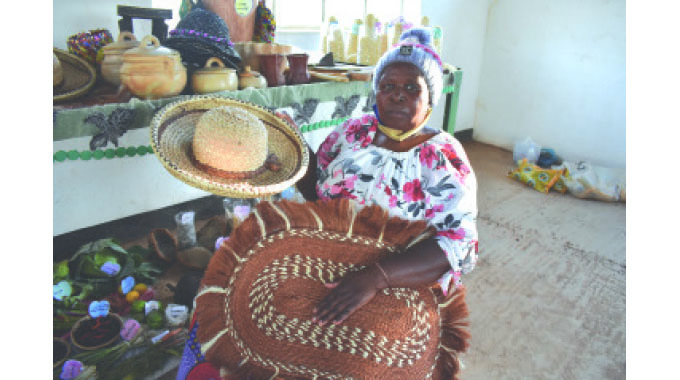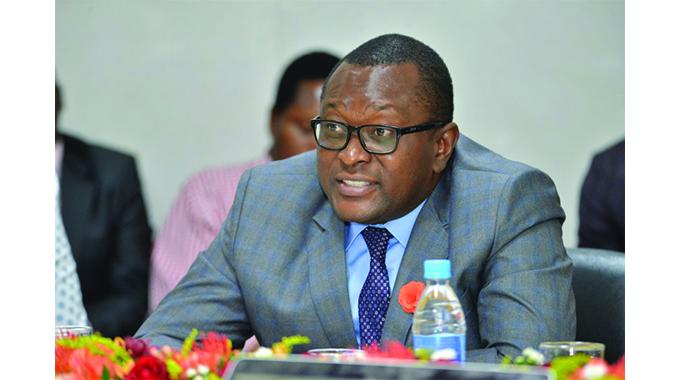Giving testimonies after seeking divine intervention

Raymond Jaravaza, Showbiz Correspondent
WITH a photo of an Indian man in hand and a beaming smile from ear-to-ear, Ashley Zata tells the whole world that her dream has finally come true — that she has finally married the man of her dreams, in a video posted on social media.
Ordinarily, a video of a woman announcing her engagement or wedding is nothing out of this world, but what makes Zata’s case a bit baffling are the circumstances in which she met the gentleman she calls “the man of her dreams”.
A local prophet told her years before she met her husband that she would one day tie the knot with a gentleman of Indian descent, she says.
While it all sounds like a perfectly written script for a fiction movie, Zata doesn’t shy away from telling the world how and when it all started.
Posting the video on social media doesn’t make it any less bizarre.
After all, social media is an unforgiving universe of its own with millions of users patiently waiting behind smartphones, laptops and computers ready to dissect, critique, mock and ridicule videos such as the one posted by Zata.
“In 2013, I visited Prophet Ngwenya’s shrine in Pumula South and he prophesied that one day I’ll get married to an Indian man but I just laughed it off at the time.
“Four years later in 2017, I visited my sister in South Africa and met an amazing Indian man and we’ve been married since then,” Zata beams in front of a camera, presumably a smartphone camera.
One would be forgiven for entertaining the idea that Zata was perhaps paid to make a charade in front of the camera just to earn a few silver coins.
Who will forget how a Zimbabwean man known at the time as Brighton “Elliot” Moyo was “resurrected” from the dead by South African Pastor Alph Lukau at Alleluia Ministries in Sandton, South Africa.
Reports of the “resurrection” stunned the world.
A new but sad twist to the saga later emerged when our sister paper B-Metro reported that Moyo was, in fact, an alias for the man who was known to his family as Thabiso Proud Mlanje back in rural Lupane.
The publication reported that the man who staged the “coming back from the dead” stance in February 2019 passed away two months later at St Luke’s Hospital in Lupane after constantly vomiting blood before succumbing to an unknown illness.
Was Moyo or Mlanje paid to wake up from the “dead” or a miracle was indeed performed?
He took his secret to the grave, it appears.
Saturday Leisure tracked down Zata in Johannesburg, South Africa and she was more than willing to share her story.
“People think I recorded the video just to be famous or because I was paid, but that was my own way of giving a testimony on how Prophet Ngwenya helped me a few years ago. Some people are comfortable giving testimonies in church but I have no problem telling my side of the story through a video that everyone will see.
“My testimony is not different from those made in person in church. The only difference is that I used social media to give my testimony. Yes, we are still married and he is a good husband,” said Zata.
Not everyone believes that some of the so-called testimonies are genuine.
“Church as we know it has changed. People are after money and will do anything to survive so I’m not convinced that these testimonies we hear on radio or see on social media are all true.
“If these prophets can perform miracles, why do we still have disabled persons here in Bulawayo or the country in general who need help, but are struggling to make ends meet because of their disabilities,” questioned Mlandu Siziba of Mpopoma suburb.
Religion and the subject of prophets has been a hot subject in the country over the last decade or so.
The emergence of prosperity churches has not made the topic any easier to navigate.
Since the rise to national prominence of the country’s new breed of prophets, a cold war has been waged between the flamboyant Men of cloth and those that still consider themselves as the more conservative ones like Prophet Thabiso Ngwenya.
For his part, he believes judging prophets based on testimonies given by their congregants is not only unfair, but is mischievous on the part of those who accuse people like Zata of being paid to make recordings of their testimonies.
“People have a right to either believe in the Word of God or traditional beliefs. For those that believe in the Lord, I always say miracles are possible when you have unwavering belief in Him,” said Prophet Ngwenya.

Charity Musodza
In his paper titled The Political and Social Impact of Prophetic Churches in Zimbabwe, Nonimous Hameno observes that the popularity of miraculous prophecy stems from Christianity’s roots in the country.
At the dawn of colonialism, instead of Christianity completely eclipsing African religion, it instead got diluted by Zimbabweans’ own traditional beliefs, in which the supernatural is not uncommon.
“Most Christian teaching from the West was influenced by the age of reason, secular humanism and the scientific advancements of those times. Liberal theology which rejected the supernatural had gained acceptance. Christianity as it came through the missionaries therefore lacked spirituality.
“The African, on reading the Bible, immediately saw a disconnection between the Christianity taught by the missionary and biblical experience. The Bible is full of miracles and supernatural encounters, a spirituality the African was more familiar with,” he said.

Prophet Thabiso Ngwenya
Do Zimbabweans in general believe in miracles or the power of prophecy?
“My daughter got really sick three years ago and doctors couldn’t even give a diagnosis of what was wrong with her. After weeks in hospital, I decided to see a prophet in Bulawayo who told me to bring one of my daughter’s dresses, which he took to his shrine for prayers.
“People still don’t believe it when I tell them that she got better within days and was eventually discharged from hospital,” said Charity Musodza. – @RaymondJaravaza.












Comments